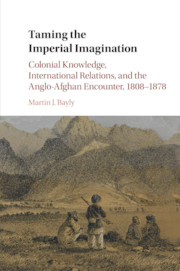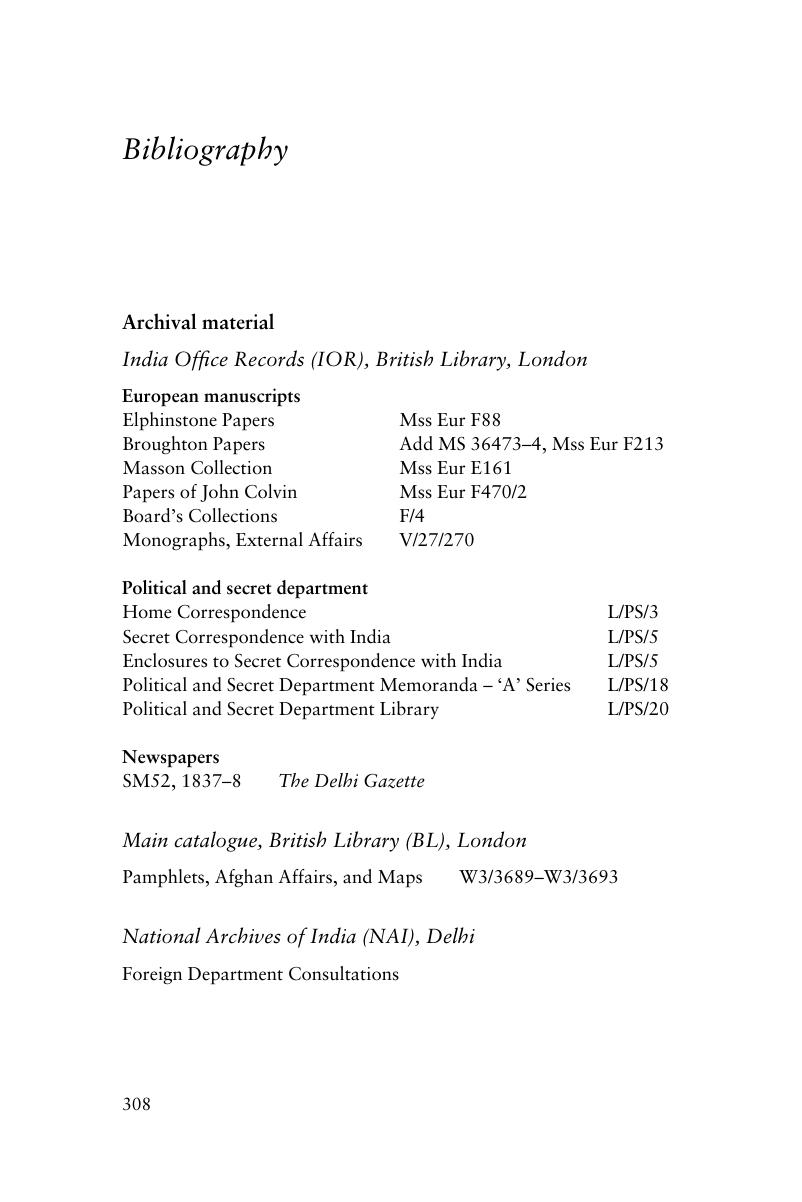 Taming the Imperial Imagination
Taming the Imperial Imagination Book contents
Bibliography
Published online by Cambridge University Press: 05 May 2016
Summary

- Type
- Chapter
- Information
- Taming the Imperial ImaginationColonial Knowledge, International Relations, and the Anglo-Afghan Encounter, 1808–1878, pp. 308 - 324Publisher: Cambridge University PressPrint publication year: 2016
